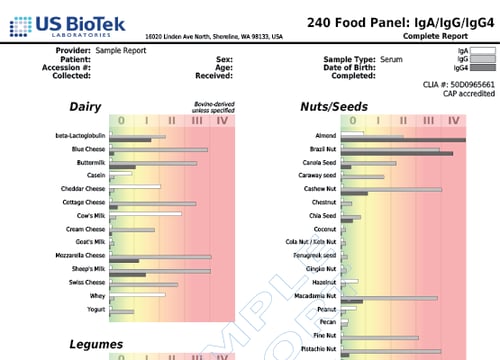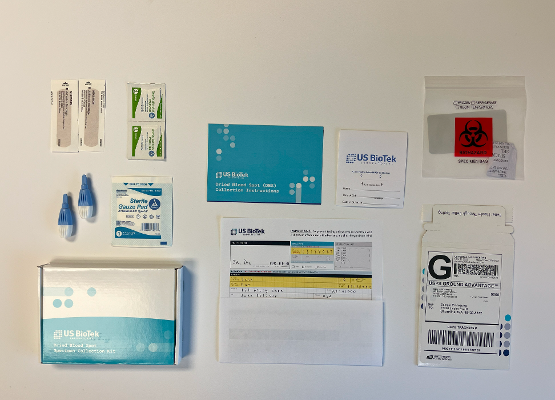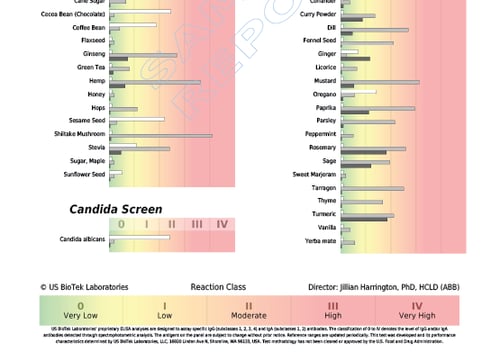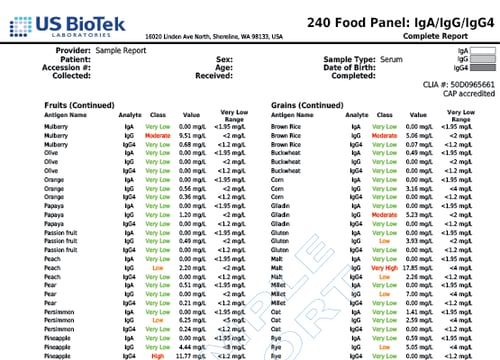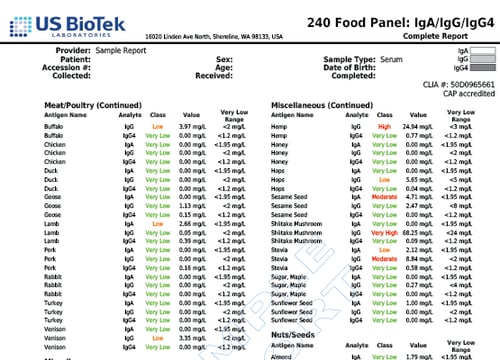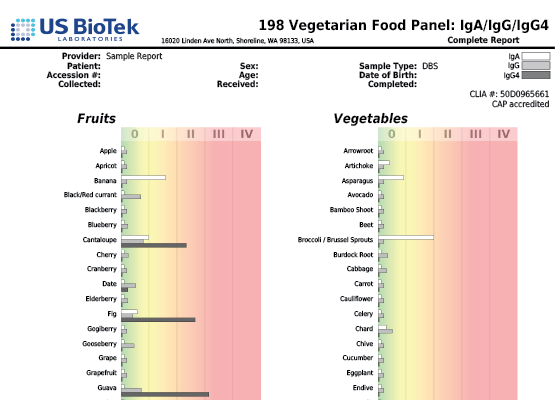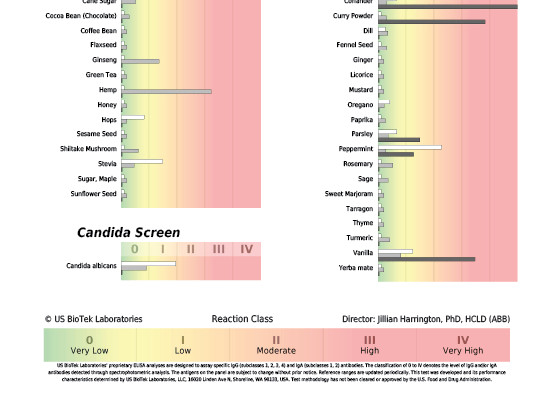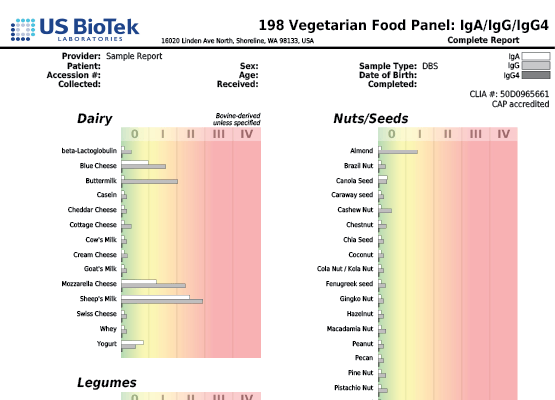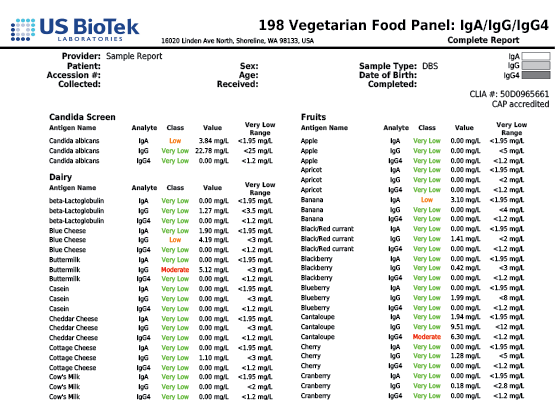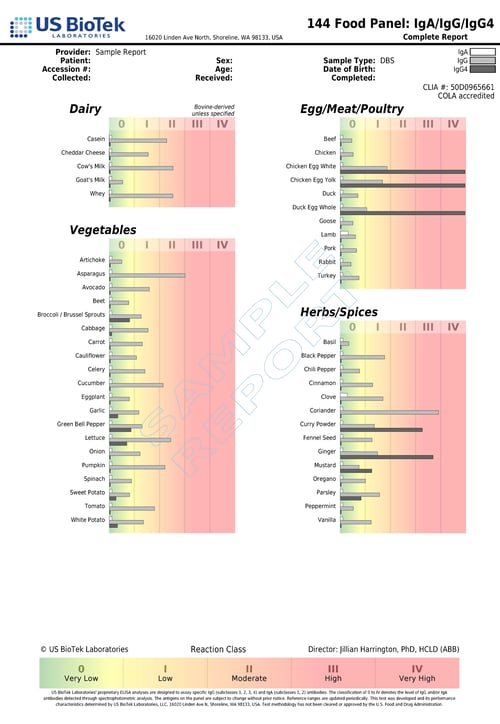IgG4 Antibody Testing: Clinical Insights for Autism, IBS, & Immunotherapy
Presented by Dr. Chris D. Meletis, ND
One of the most prolific proteins in circulation, IgG comprises approximately 10% to 20% of the plasma protein and 75% of the total antibodies in the blood. Its clinical usefulness stems from the fact that IgG-mediated sensitivities are difficult to identify in the absence of testing due to symptom onset that can range from hours to days after exposure to the offending substance.
Most IgG immune complexes can be deposited in tissues, leading to inflammation. IgG1 – IgG3 activate complement, resulting in an inflammatory cascade that is associated with IBS, IBD, eczema, migraines, autism, anxiety, depression, and obesity. However, there’s a fourth IgG subclass—IgG4—that does not bind to complement and therefore does not trigger inflammation. IgG4 is commonly known as a “blocking” antibody. As such, it inhibits more serious IgE-mediated allergic reactions.


